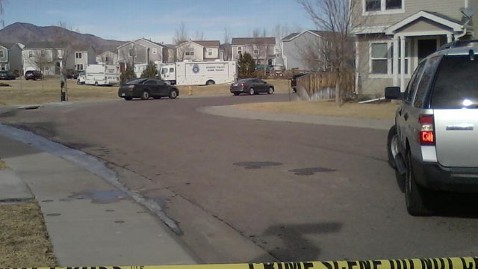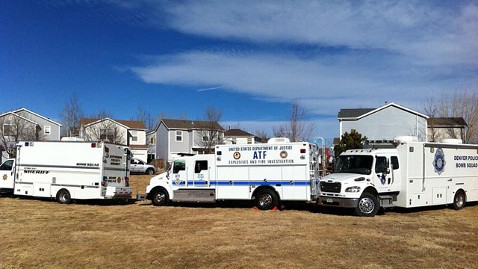PORT SAID, Egypt/CAIRO (Reuters) - At least 32 people were killed on Saturday when Egyptians rampaged in protest at the sentencing of 21 people to death over a soccer stadium disaster, violence that compounds a political crisis facing Islamist President Mohamed Mursi.
Armored vehicles and military police fanned through the streets of Port Said, where gunshots rang out and protesters burned tires in anger that people from their city had been blamed for the deaths of 74 people at a match last year.
The rioting in Port Said, one of the most deadly spasms of violence since Hosni Mubarak's ouster two years ago, followed a day of anti-Mursi demonstrations on Friday, when nine people were killed. The toll over the past two days stands at 41.
The flare-ups make it even tougher for Mursi, who drew fire last year for expanding his powers and pushing through an Islamist-tinged constitution, to fix the creaking economy and cool tempers enough to ensure a smooth parliamentary election.
That vote is expected in the next few months and is meant to cement a democratic transition that has been blighted from the outset by political rows and street clashes.
The National Defense Council, which is led by Mursi and includes the defense minister who commands the army, called for "a broad national dialogue that would be attended by independent national characters" to discuss political differences and ensure a "fair and transparent" parliamentary poll.
The National Salvation Front of liberal-minded groups and other Mursi opponents cautiously welcomed the call.
THREATS OF VIOLENCE
Clashes in Port Said erupted after a judge sentenced 21 men to die for involvement in the deaths at the soccer match on February 1, 2012. Many were fans of the visiting team, Cairo's Al Ahly.
Al Ahly fans had threatened violence if the court had not meted out the death penalty. They cheered outside their Cairo club when the verdict was announced. But in Port Said, residents were furious that people from their city were held responsible.
Protesters ran wildly through the streets of the Mediterranean port, lighting tires in the street and storming two police stations, witnesses said. Gunshots were reported near the prison where most of the defendants were being held.
A security source in Port Said said 32 people were killed there, many dying from gunshot wounds. He said 312 were wounded and the ministry of defense had allocated a military plane to transfer the injured to military hospitals.
Inside the court in Cairo, families of victims danced, applauded and some broke down in tears of joy when they heard Judge Sobhy Abdel Maguid declare that the 21 men would be "referred to the Mufti", a phrase used to denote execution, as all death sentences must be reviewed by Egypt's top religious authority.
There were 73 defendants on trial. Those not sentenced on Saturday would face a verdict on March 9, the judge said.
At the Port Said soccer stadium a year ago, many spectators were crushed and witnesses saw some thrown off balconies after the match between Al Ahly and local team al-Masri. Al Ahly fans accused the police of being complicit in the deaths.
Among those killed on Saturday were a former player for al-Masri and a soccer player in another Port Said team, the website of the state broadcaster reported.
TEARGAS FIRED
On Friday, protesters angry at Mursi's rule had taken to the streets for the second anniversary of the uprising that erupted on January 25, 2011 and brought Mubarak down 18 days later.
Police fired teargas and protesters hurled stones and petrol bombs. Nine people were killed, mainly in the port city of Suez, and hundreds more were injured across the nation.
Reflecting international concern at the two days of clashes, British Foreign Office Minister for the Middle East Alistair Burt said: "This cannot help the process of dialogue which we encourage as vital for Egypt today, and we must condemn the violence in the strongest terms."
European Union foreign policy chief Catherine Ashton urged the Egyptian authorities to restore calm and order and called on all sides to show restraint, her spokesperson said.
On Saturday, some protesters again clashed and scuffled with police in Cairo, Alexandria and other cities. In the capital, youths pelted police lines with rocks near Tahrir Square.
In Suez, police fired teargas when protesters angry at Friday's deaths hurled petrol bombs and stormed a police post and other governmental buildings including the agriculture and social solidarity units.
Around 18 prisoners in Suez police stations managed to escape during the violence, a security source there said, and some 30 police weapons were stolen.
"We want to change the president and the government. We are tired of this regime. Nothing has changed," said Mahmoud Suleiman, 22, in Cairo's Tahrir Square, the cauldron of the 2011 anti-Mubarak revolt.
Mursi's opponents say he has failed to deliver on economic pledges or to be a president representing the full political and communal diversity of Egyptians, as he promised.
"Egypt will not regain its balance except by a political solution that is transparent and credible, by a government of national salvation to restore order and heal the economy and with a constitution for all Egyptians," prominent opposition politician Mohamed ElBaradei wrote on Twitter.
The opposition National Salvation Front, responding to the Defense Council's call for dialogue, said there must be a clear agenda and guarantees that any deal would be implemented, spokesman Khaled Dawoud told Reuters.
The Front earlier on Saturday threatened an election boycott and to call for more protests on Friday if demands were not met. Its demands included picking a national unity government to restore order and holding an early presidential poll.
Mursi's supporters say the opposition does not respect the democracy that has given Egypt its first freely elected leader.
The Muslim Brotherhood, which propelled Mursi to office, said in a statement that "corrupt people" and media who were biased against the president had stirred up fury on the streets.
The frequent violence and political schism between Islamists and secular Egyptians have hurt Mursi's efforts to revive an economy in crisis as investors and tourists have stayed away, taking a heavy toll on Egypt's currency.
(Additional reporting by Omar Fahmy, Peter Griffiths in London and Claire Davenport in Brussels; Writing by Edmund Blair; Editing by Mark Trevelyan)













